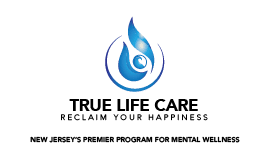An intensive outpatient program for depression is an excellent option if you want professional guidance while maintaining your daily routine. Please contact our admission office for more informations about our intensive outpatient program for depression in New Jersey.

An intensive outpatient program (IOP) offers a structured and comprehensive approach to help patients struggling with depression. An IOP provides a higher level of care than traditional outpatient therapy. An intensive outpatient program for depression also allows individuals to maintain their daily routines and responsibilities while still receiving mental health support.1
These programs are for individuals experiencing moderate to severe symptoms of mental health or substance abuse disorders but do not need 24-hour support. They are best for patients who have completed inpatient treatment and need ongoing support in their recovery.
Depression involves intense feelings of sadness, hopelessness, and a loss of interest in activities. Depression can affect anyone at any age. Various factors, including genetics, environmental factors, and life events, can contribute to its cause.
This disorder involves symptoms that last for at least two years, with periods of improvement or worsening of symptoms. It is also known as dysthymia and can be a chronic condition that affects an individual’s daily life, as those with this diagnosis have regularly low moods.
Bipolar disorder involves alternating periods of depression and mania or hypomania. During manic episodes, individuals may experience elevated or irritable moods and impulsive behavior.
An intensive outpatient program for depression is typically less intensive than a partial hospitalization program (PHP). Intensive outpatient programs usually involve several hours of therapy daily, several days a week, while PHPs involve more intensive and structured treatment. This requires patients to spend most of their day at the treatment center.
Partial hospitalization programs typically provide more intensive medical and psychiatric care if needed as well. This includes medical monitoring, medication management, and 24-hour supervision by healthcare professionals.
A PHP is perfect for individuals who need a higher level of care than an IOP can provide, such as those at risk of harming themselves or others.
Intensive outpatient program treatment plans are dependent on progress and changing needs. Patients can receive a treatment plan that fits their needs and lifestyle.
Overall, an intensive outpatient program for depression is a great option for those unable to commit to the more rigid scheduling of hospitalization programs.
The length of an IOP can vary depending on the individual’s needs and the program’s structure. Typically, an IOP can range from several weeks to several months, depending on the severity of the patient’s condition. The therapist may extend the length of the program based on the patient’s progress and goals. There is extra support and treatment if a patient is not progressing as expected.
It’s important to note that while intensive outpatient programs are less intensive than inpatient or partial hospitalization programs, they still require a significant commitment of time and effort from the patient. Counselors encourage patients to participate fully in the program, including attending all therapy sessions and following any treatment plans.
An IOP will benefit individuals who require more support but do not need the level of care provided by inpatient programs. An individualized treatment plan is created for each patient to address their specific needs and goals.
Structured therapy can provide a clear and focused approach to mental health treatment. It may involve goal-setting, homework assignments, and regular check-ins with a mental health provider. Structured therapy can effectively treat various mental health conditions, including depression.
Peer support can help people with depression feel more empowered and motivated to continue their recovery journey
An intensive outpatient program for depression can teach patients coping skills and strategies to manage their symptoms of depression. Patients can learn specific techniques, such as stress reduction, to help their daily activities.

If you or someone you know is experiencing symptoms of depression, know that you are not alone. Contact us at True Life Care Mental Health. We are a wellness center that provides holistic treatment in a caring, compassionate, and inclusive environment. Our center offers outpatient treatment options with flexible scheduling, allowing clients to maintain work, school, and family commitments.
We will work with you to curate an individualized plan that will address your specific symptoms so you can get the help you deserve. You don’t have to struggle with symptoms of depression alone – we will be with you every step of the way during your healing journey. Please contact our admission office for more informations about our intensive outpatient program for depression in New Jersey.

Here at True Life Care, we believe healing is a journey and we are here to support you every step of the way. Our goal is to empower you to take control of your mental health and live your best life. We are honored to be a part of your journey and look forward to your success!


True Life Care Mental Health New Jersey. Copyright 2023. All Rights Reserved.